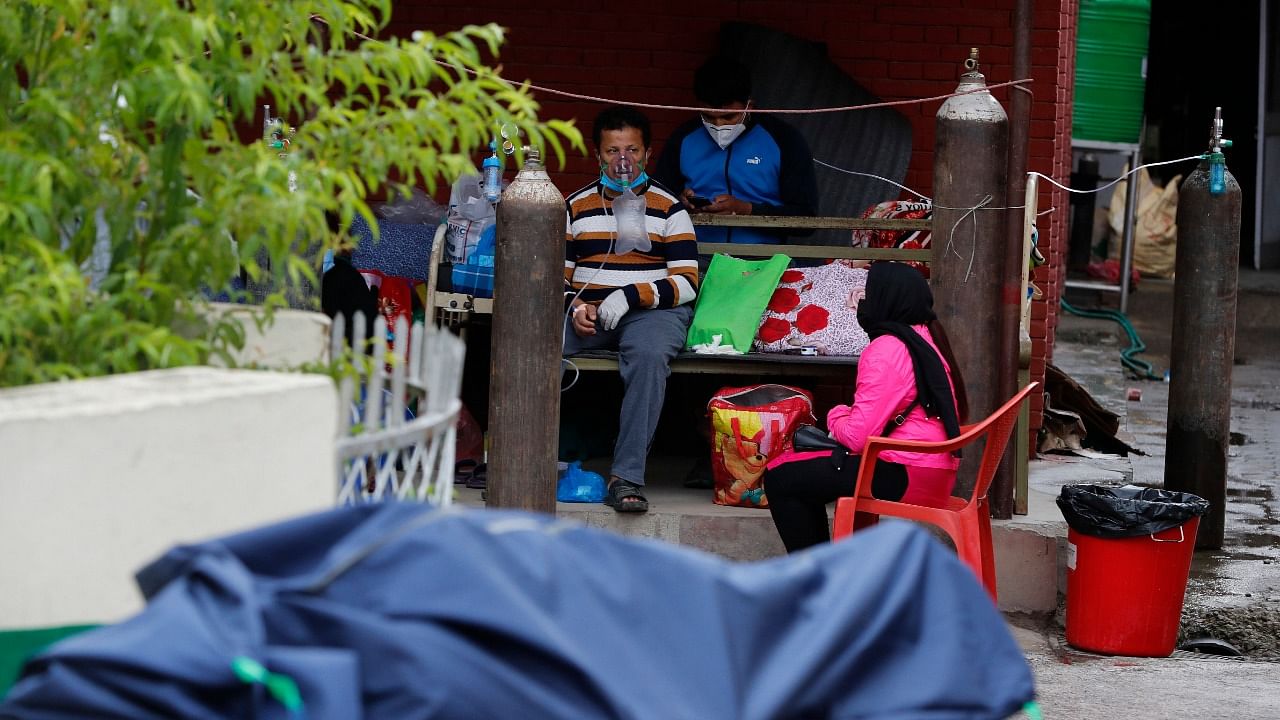
Describing Covid-19 as the worst health crisis in the recent memory, an American scientist leading the research wing of one of the top 20 largest pharmaceutical companies in the world has said that lack of preparedness has been the "greatest failure" of the collective ecosystem.
"I don't want to point a finger at anyone. In some ways it's a collective failure of our system. (While) it's the greatest success in our ecosystem our response to Covid-19 you might argue, it's also perhaps the greatest failure of our collective ecosystem, which was our lack of preparedness," Dr Andrew Plump, president of R&D, Takeda Pharmaceutical Company Limited, told PTI in an interview.
"Covid-19 is the worst health crisis of our generation or the generation before us. It has been a travesty. It's horrible what's happened across the world," said Dr Plump ahead of the 15th annual India-US Biopharma and Healthcare Summit on June 22, being organised by Boston-based USA India Chambers of Commerce (USAIC).
However, there are silver linings and there are certainly learnings that can be taken forward, he noted.
"I think the most important learning is: Let's not get fooled again by history. History predicted this. We knew we were going to have a pandemic and in fact, we got lucky this time in some ways. Despite the massive losses it could have been, it could have been much worse," Dr Plump said.
In a recent op-ed, he wrote that although the Covid-19 pandemic has been a human and healthcare disaster, by scientific measures the world was lucky this time.
"Covid-19 was far less lethal than its predecessors, less contagious than previous pandemic viruses, and we were able to quickly develop a cadre of effective vaccines. But luck is not a strategy," he wrote in an op-ed at STAT.
A co-founder of the Covid R&D Alliance, which was established last year, Dr Plump argued that a pandemic needs to be given the same importance and priority by the government as they give to defense.
"The challenge with pandemics is that we think we can't see the enemy, so we don't even know where to start and so we don't do anything. But that's a fallacy. We know the enemy," he said, adding that science has advanced so much that eight or nine times out of 10 and they can project out.
"With 80-90 per cent confidence, we can guess what this virus is going to look like. Is it going to come from fluid, or it's going to come from coronavirus. So, we do know the enemy," he said.
There are now enough analytical capabilities where they can survey viruses that exist in animals and can use advanced analytics, machine learning and artificial intelligence to even make better predictions.
"So we're not just basing what's likely to come from what's coming in the past, but we're actually basing our ability to protect ourselves against future pandemics by knowing specifically what's likely to come easy with these advanced analytics," Dr Plump said.
Observing that there is a great scope for collaboration between pharma companies of the two countries, and in particular platforms like that of the USA India Chambers of Commerce, he said that first and foremost, innovation and science need to be the cornerstone.
"Secondly, we need to have an infrastructure, we need to have a focus, we need to have collaboration beyond the walls of science that include governments and policymakers and not for profit organisations and that's something else that the USA India Chamber of Commerce has done," he said.
Referring to this year's theme of the conference "From N of one to N of a billion" Dr Plump said, "The theme is meant to symbolise the fact that we have become so innovative in health sciences that we're today able to make therapies drugs that can be tailored to a single individual."
"But we recognise that if we don't make drugs that are also treating the billions of patients that live across the world, we're not serving our purpose," he said and suggested that the USA Indian Chamber of Commerce can elevate the dialogue of healthcare innovation and bring it ensure that it's focused as much on innovation as it is on access.
He opposed the move to grant TRIPS waiver to certain Covid-19 vaccines at the World Trade Organization (WTO), as being proposed by India and South Africa and supported by the United States.
"It's horrible, because the issue is all of us want to create solutions that enable rapid resolution of a global pandemic. That's not where the gap is. The gap is in the supply chain. It's in manufacturing. It's in access," he said.
"You even saw in India, recently, how you rolled out a vaccination program. Here the government made a decision to decentralise a lot of the work and it backfired. Vaccines ended up going to the wrong people. Costs were driven up. It's not about IP. It's really an operational challenge that we're facing right now; it's not an intellectual property challenge," Dr Plump said.
So, not only does it fail to answer the problem, but also creates a challenge in the future. Because innovation is driven by intellectual property, the ability to have some proprietary access to a discovery, he said.
"And, if you step in and create structures that can in a wanton way like what we see with the WTO remove intellectual property protection, you're going to put the brakes on innovation in the future. So, I think it's a horrible example of trying to do the right thing, but with the wrong solution," Dr Plump said.